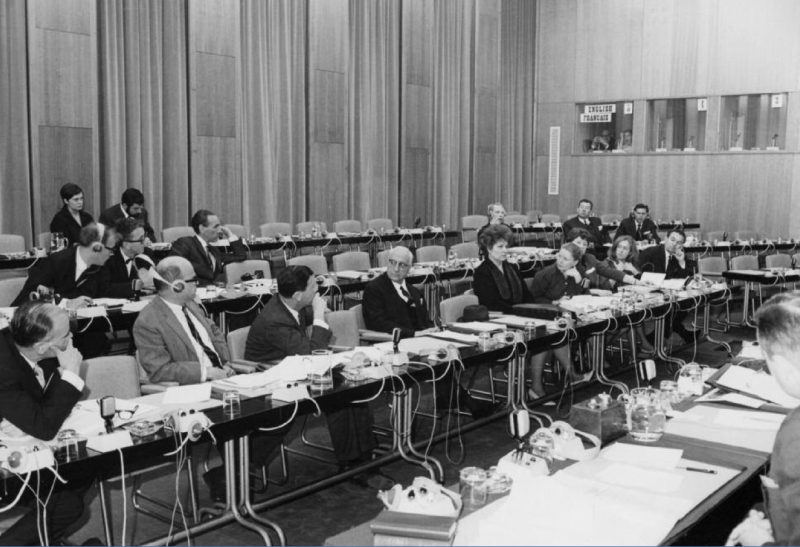
Recalling the Sophists who approached Socrates
with the argument that motion did not exist, to
which the philosopher replied by merely arising
and starting to walk, so Unesco had transformed
speculative and theoretical arguments as to the
existence of a political science into action by
calling the present conference.
Maurice Duverger
at the founding conference of the IPSA,
12 September 1949
It is hard for political scientists of 2009 to imagine the condition and status of their discipline in the world under reconstruction of 1949. In place of the familiar, well-structured web of national associations we know today, there were associations only in the United States (founded in 1903), Canada (1913), Finland (1935), India (1938), China (1932), and Japan (1948). Communication between them was virtually nonexistent, although they were aware that they were not alone in the world. What little (minimal) international cooperation in political science there was occurred through the Academy of Political Science and Constitutional History, an organization Jean Meynaud would later decry as an “instrument of personal politics” conducting “extremely limited” activities1. The very definition of “political science” was uncertain, and the relevance of any distinction between philosophy, the social sciences, and the humanities was the subject of debate.
The desire of the new United Nations Educational, Scientific and Cultural Organization (UNESCO) to stimulate development of the social sciences therefore necessarily gave rise to an enterprise that had both intellectual and institutional aspects. The intellectual outlines of the project were drawn at UNESCO’s first general conference in December 1946 by the Social Sciences, Philosophy and Humanistic Studies Sub-Commission, a very heterogeneous body comprising a Philippine historian as chairperson, a Polish novelist and a Chinese linguist as vice chairs, and an American sociologist and a Danish philosopher as rapporteurs. After debating the issues, the Sub-Commission took note of the distinction between “social science” on the one hand and “philosophy and the humanities” on the other. Drawing on the theme enunciated by US President Franklin Roosevelt that “if civilization is to survive, we must cultivate the science of human relations,” it assigned the social sciences the task of furthering friendship between peoples by promoting mutual understanding and fostering the removal of such obstacles as “nationalism, antagonisms of a technological character, insufficiency of government action, problems relating to movements of population or relations of dependency between two peoples.2”
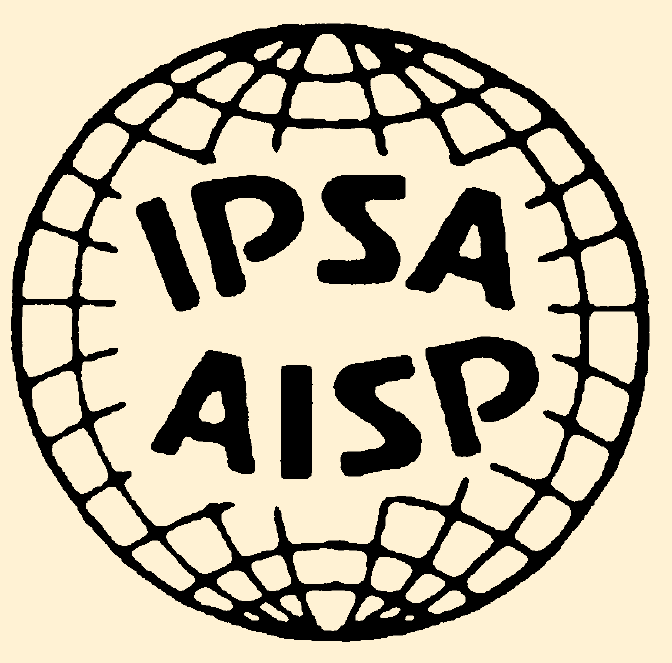
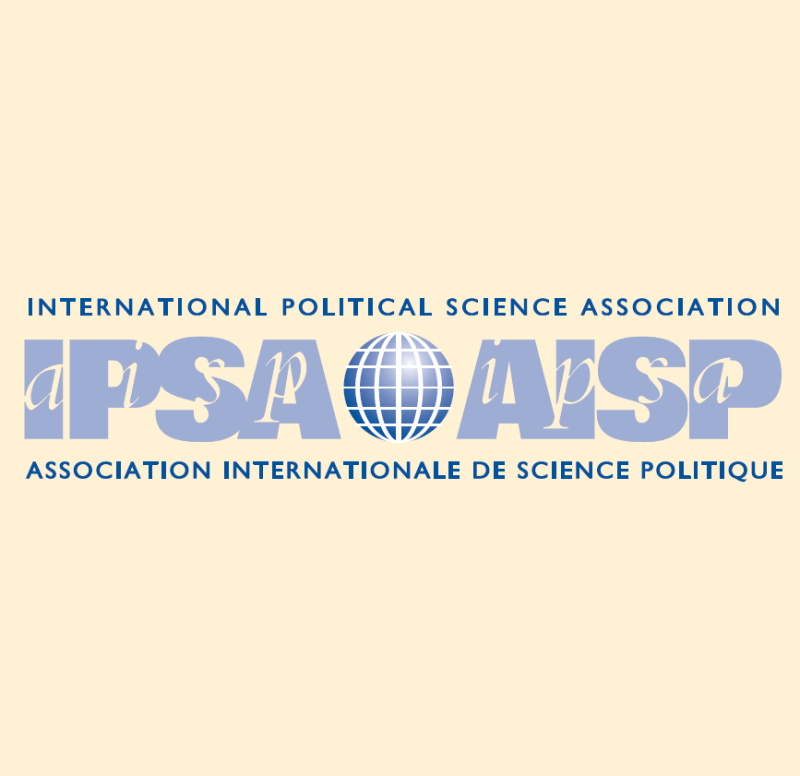

Subsequent general conferences further refined this highly political project, and in 1948, seven priority topics for research were identified. Four amounted to a reassertion of the peace-making potential of the social sciences: the study of “tensions affecting international understanding”; the “philosophical analysis of current ideological controversies”; the “study of international collaboration”; and an enquiry into the “humanistic aspects of culture.” Two other topics, “social implications of science” and “scientific and cultural history,” made it clear that the young social sciences were to be a tool for controlling the natural sciences, following on the disillusionment brought on by their exploitation for military purposes. One area of research alone was only indirectly related to the demands of reconstruction; the object of the project “methods in political science,” was:
To promote the study of the subject-matter and problems treated by political scientists of various countries in recent research materials..., the various types of approach and emphasis, the methods, techniques and terminology employed and the quantity of production in recent political science.3
It is somewhat surprising that a project would be so specifically targeted at the field, for it was hardly to be expected that such a pioneering course of action would be laid out for an as-yet embryonic discipline whose very legitimacy was contested. Yet, as far as UNESCO was concerned, the priority being given methodological issues was amply justified by the research questions that political science was to ponder. Since political science was to study a political realm that was held responsible for the collapse of the world order, it was urgent that it be given the means both to study and to reform the defective institutions.
The professionals who met for the first time in Paris on 16 September 1948 embraced this mission in the summary of their proceedings:
The large and expanding sphere of government activity in all countries, and the emotions and interests which are aroused by politics, make it highly desirable that both political ideas and political practice should receive disinterested study. It is the aim and purpose of political science to provide such study. It is legitimate to believe that by this means the political insight and discrimination of the people may be increased, a more informed public opinion brought to bear on political problems, and the work of government improved at all levels.4
For the participants in the September 16 meeting, bringing this ambitious project to fruition meant establishing a dialogue between political scientists from different countries and disciplines. Unfortunately, although the idea behind the project was simple, it entailed major practical problems, for it involved nothing less than clearing a space on the international scene for a discipline whose autonomous status was barely acknowledged outside the United States. It further involved bringing political philosophers, political jurists, political historians, and political economists to work together and, in general, creating a semblance of unity out of extreme diversity.
Well aware of these difficulties, the eight participants were very circumspect and underscored the point that:
The aim of international cooperation… is not to substitute a uniform treatment of the subject for the prevailing diversity of topics and methods. The juridical, historical, philosophical, sociological…, psychological and statistical methods have all been successfully used in the study of political ideas and institutions....
Taking the heterogeneous membership of their group into account5, they showed consideration for most of their number when they came to define the four fields of study that were the province of political science. They thus acknowledged the influence of the philosophers with “political theory,” the jurists with “government,” the internationalists with “international relations,” and the fledgling behaviorist school of American political science with “parties, groups and political opinion.” They kept their objective of international 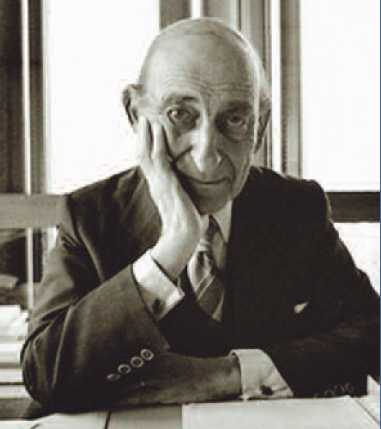 collaboration well in sight, though. They perceived it as an absolute heuristic necessity that would, ultimately, lead to the development of “scientifically valid” criteria that would enable them to separate the wheat from the chaff in existing studies. Still, the concessions to the various “factions” put the project on an only somewhat more solid footing than before.
collaboration well in sight, though. They perceived it as an absolute heuristic necessity that would, ultimately, lead to the development of “scientifically valid” criteria that would enable them to separate the wheat from the chaff in existing studies. Still, the concessions to the various “factions” put the project on an only somewhat more solid footing than before.
Despite its fragile underpinnings, the intellectual enterprise was coupled with an institutional one. To follow up on the 1948 General Conference decision to give organizational substance to the promotion of mutual knowledge among scholars, the creation of an International Political Science Association was given strong—and financial—encouragement. The researchers who met on 16 September 1948 thus imagined an IPSA that was consistent with their ambitions. They planned for an association that would have a wide range of tools at its disposal: an international documentation center, a research bulletin, an abstract service, translations of basic documents, international conferences, travel grants for researchers, and encouragements for international research projects. Everything, however, would be geared to a single goal: facilitating mutual knowledge in order to advance knowledge and, ultimately, “[encourage] in all countries... improved techniques of political organization.” Implementation of this as-yet bare-bones project was Raymond Aron, head of the “methods in political science” project and chairman of the September 1948 and 1949 conferences in Paris assigned to a preparatory committee made up of Walter R. Sharp (United States, chairman), John Goormaghtigh (Belgium, secretary), Raymond Aron (France), William A. Robson (United Kingdom), Angadipuram Appadorai (India), and Marcel Bridel (Switzerland).
The project gained momentum in the year following the September 1948 conference. The first meeting spurred national communities to form associations so that they would carry some weight in the future IPSA from the very outset. France’s political science association was thus founded in 1949, while similar dynamics bore fruit soon afterwards in the United Kingdom, the Netherlands, Israel, Sweden (1950), Germany, Belgium, Mexico, and Greece (1951). At the same time, on the international level, the committee chaired by Walter Sharp set to work and produced extensive correspondence. Proposals for the constitution of the organization came thick and fast, but stumbling blocks outnumbered areas of consensus. The founding conference of the IPSA, which was held from 12 to 16 September 1949 in Paris, was thus no mere formality and had to settle some major issues.
Sixteen countries met at the conference; four (United States, France, Canada, and India) were represented by a delegate from their national Association. Given the problems mentioned earlier, it is hardly surprising that their debates came quickly to center on the relevance of even creating an IPSA, especially since an International Institute of Administrative Sciences (IIAS) was already operating in Brussels. It would be wrong to think this was merely an organizational issue; the very intellectual legitimacy of political science was at stake
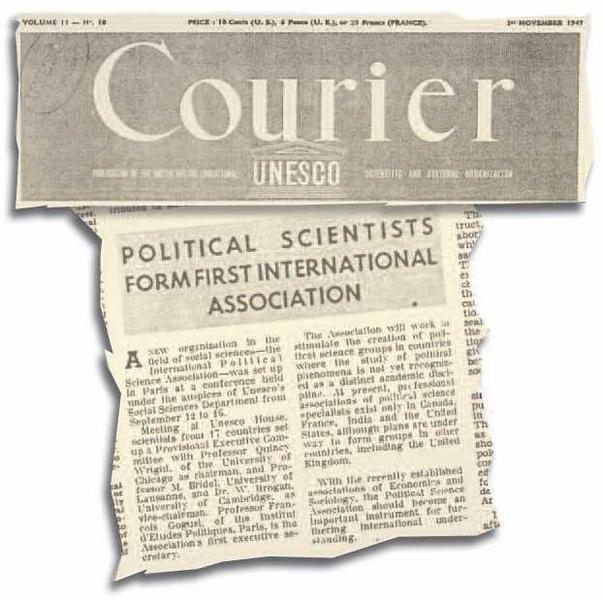 The suggestion to create a joint secretariat for the IPSA and IIAS reflected doubt in the minds of some people that there was any real demarcation line between their respective fields of research.6 The need to differentiate themselves from the IIAS pushed the participants to distance themselves from the political agenda of UNESCO and to adopt an enforced positivism. In the words of Maurice Duverger:
The suggestion to create a joint secretariat for the IPSA and IIAS reflected doubt in the minds of some people that there was any real demarcation line between their respective fields of research.6 The need to differentiate themselves from the IIAS pushed the participants to distance themselves from the political agenda of UNESCO and to adopt an enforced positivism. In the words of Maurice Duverger:
It would be fatal to the future of political science to establish overclose relations with an Institute of Administrative Sciences. Such an institute [is] mainly concerned with administrative technique, that is to say, with problems of method, output and practice. The aim of the present Association [differs] in that it [proposes] to define sociological laws. Such a difference [is] the same as that between medicine, which [is] an art, and biology, which [is] a science, the latter enabling progress to be made in the former.7
This position was increasingly echoed over the course of the conference. D.W. Brogan even came to plead explicitly for the Association to “avoid an attempt to do all the things which Unesco does”; it should be an “academic body” and not “branch out into other fields.”8 The participants thus intentionally tried to keep themselves at arm’s length from the world of political action. They treated the question of whether the intellectual pretentions of political science were legitimate as settled—if not absolutely at least sufficiently to meet their own immediate needs.
The debates could therefore now move on to organizational matters. Numerous decisions were made, which cannot be dealt with in any detail in this brief survey. However, we shall take a closer look at one of the most hotly debated and immediately consequential issues: the choice of a headquarters for the new IPSA.
The problem was not an easy one, for choosing a headquarters also meant choosing a legal framework, a working language, an executive secretary, and offices. Clearly, too, the choice meant acknowledging the host country in a way. Lastly, the choice imposed conditions on the composition of the Executive Committee; for reasons of both finance and the smooth operation of the Association, its members could not be based too far from the headquarters. The question of the location had already been raised but left unresolved by the preparatory committee and was the subject of long discussions over the course of the conference.
From the outset, there was unanimous agreement on only one point: the IPSA had to be located on the continent of Europe in order to foster development of the discipline there. This view was so widely shared that the American Political Science Association (APSA) voted a resolution to this effect on 29 December 1948.9
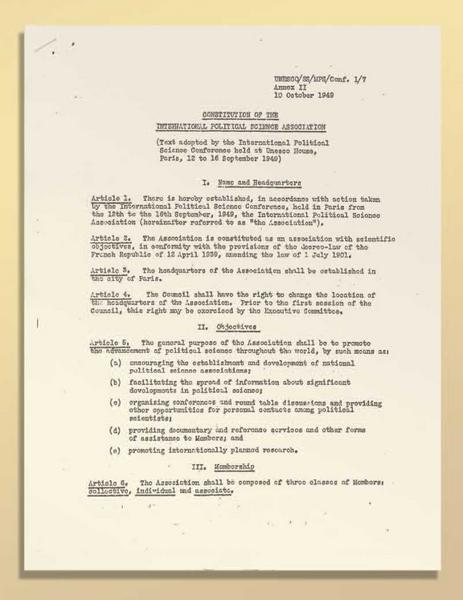
There remained the problem of which European city to choose. Three possible sites were proposed: Brussels, Geneva and Paris. Brussels was where the highly esteemed secretary of the preparatory committee, John Goormaghtigh, was from. However, it was already the site of the IIAS, and, as we have seen, the political scientists wanted to keep their distance from that body. Geneva had the advantage of offering, as Maurice Duverger put it, “political serenity” to an association that would have to deal with “‘explosive’ questions.” But the city was already home to too many international associations and lacked a candidate for the job of secretary. In the end, Paris, the third option, which was proposed rather late in the discussions, carried the day. The French capital had in its favor the fact that it was already the site of UNESCO and that it had a candidate for the post of Executive Secretary in the person of François Goguel. Moreover, the Fondation Nationale des Sciences Politiques (FNSP) could provide the necessary logistic facilities.10 The IPSA was thus constituted as a “foreign association” under French law.
The selection of Paris led to the selection of a Provisional Executive Committee that included eight Europeans: Marcel Bridel (Switzerland, vice president), Denis W. Brogan (United Kingdom, vice president), Jan Barents (Netherlands), Fehti Celikbas (Turkey), Maurice Duverger (France), John Goormaghtigh (Belgium), Elis Hastad (Sweden), and Adam Schaff (Poland). Also members were two North Americans, Quincy Wright (United States, president) and Crawford B. Macpherson (Canada); one South American, Isaac Ganon (Uruguay); and one Asian, H. Khosla (India).
In late 1949, the committee and its Executive Secretary had to begin to put into place the structures that would enable the IPSA to take up the challenge laid out in its constitution: “[promoting] the advancement of political science throughout the world.”11 The new Association thus had a single objective that entailed action on three fronts: building the organization, fostering the intellectual development of political science, and helping spread the discipline geographically.
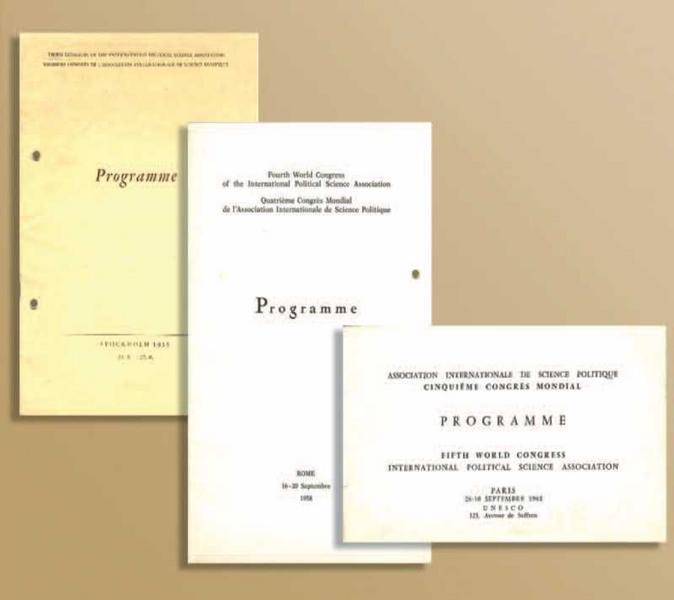
Notes
- Letter from Jean Meynaud to John Goormaghtigh, 22 September 1955. Translation.
- UNESCO, General Conference: First session, Paris, UNESCO, December 1946.
- UNESCO, Records of the General Conference of Unesco, second session, Mexico, 1947. Paris, UNESCO, April 1948.
- UNESCO, International Conference on: Methods in Political Science, 13 September 1948–16 September 1948. Statement issued by the members of the Conference, 16 September 1948. Paris, UNESCO, 28 April 1949.
- Raymond Aron (France), the conference chairman, was an agrégé in philosophy. Frede Catsberg (Norway), Georges Langrod (Poland) and William A. Robson (United Kingdom) were all professors of public law. G.D.H. Cole (United Kingdom) was a professor of social and political theory. John Goormaghtigh (Belgium) was the director of an institute of international relations. M. Rathnaswami (India) was a university vice-chancellor. Only Walter R. Sharp (United States) held the title of professor of government.
- “Students of politics… should, however, distinguish between the analysis of verifiable facts and the formulation of value judgments.… Frequent contacts between the political scientists of different countries would stimulate awareness of these factors.” (UNESCO, International Conference on: Methods in Political Science, 13 September 1948–16 September 1948, op. cit.)
- UNESCO, International Political Science Conference. Summary Record of the second meeting, held at Unesco House, 19 Avenue Kléber, Paris 16e on Monday, 12 September 1949 at 2.30 p.m. Paris, UNESCO, 25 October 1949.
- UNESCO, International Political Science Conference. Summary Record of the third meeting, held at Unesco House, 19 Avenue Kléber, Paris 16e on Tuesday, 13 September 1949 at 10 a.m. Paris, UNESCO, 25 October 1949.
- American Political Science Association, Resolution recommended by the Committee on IR and approved in principle by the Executive Committee, 29 December 1948.
- Unesco, International political science conference. Provisional Executive Committee of the International Political Science Association. Summary record of the first meeting, held at Unesco House on Thursday, 15 September 1949 at 2.30 p.m. Paris, UNESCO, 25 October 1949.
- UNESCO, Constitution of the International Political Science Association (Text adopted by the International Political Science Conference held at Unesco House, Paris, 12 to 16 September 1949), Paris, UNESCO, 10 October 1949.











